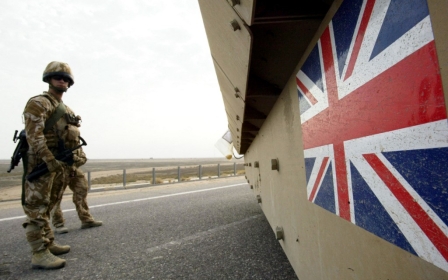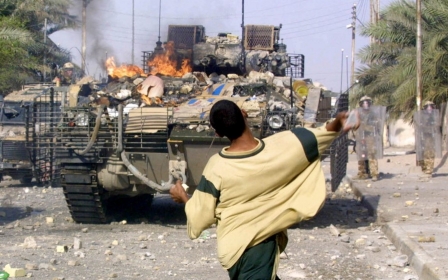UK government drops bid to shield soldiers from war crimes prosecutions

The UK government has abandoned attempts to shield members of its armed forces from prosecution for murder and war crimes committed in Iraq and Afghanistan.
Ministers agreed to amend its deeply controversial Overseas Operations Bill following stiff opposition from members of parliament’s upper house, the Lords.
The initial proposal – to shield soldiers from prosecution for torture or genocide as well as murder and war crimes – had also faced condemnation by human rights groups and retired senior officers.
This does not mean that soldiers and ex-soldiers will be prosecuted, however.
'It should never have taken so long for the government to abandon these immoral proposals, but today's collapse of the government's position is a reason for celebration'
- Steve Crawshaw, Freedom from Torture
Just one British soldier pleaded guilty at court martial to committing a war crime in Iraq, after a Basra hotel receptionist, Baha Mousa, was tortured to death, despite there being video evidence that other soldiers were involved.
New MEE newsletter: Jerusalem Dispatch
Sign up to get the latest insights and analysis on Israel-Palestine, alongside Turkey Unpacked and other MEE newsletters
Separately, three soldiers were prosecuted and jailed after photographic evidence emerged showing the abuse of prisoners.
In other cases, soldiers were prosecuted and acquitted.
In the civil courts in London, evidence has emerged suggesting that British special forces in Afghanistan may have been running an “execution squad”, killing unarmed civilians.
The provisions in the Overseas Operations Bill were widely denounced as dangerous and damaging to the UK’s standing in the world.
The United Nations high commissioner for human rights, Michell Bachelet, warned Boris Johnson’s government that the proposals would put the UK “at odds” with the Geneva Conventions.
After the government’s final climb-down on Tuesday, David Davis, an ex-soldier and former Conservative government minister, told parliament’s lower house, the Commons, that the bill had raised the danger of British troops being prosecuted by the International Criminal Court: “A truly shameful outcome.”
Stephen Timms, a member of the Labour opposition, said it was bewildering that the government had “ploughed on” with a Bill that was so widely condemned.
Steve Crawshaw, director of policy and advocacy at the London-based NGO Freedom from Torture, said: "This is a historic win for torture survivors, and for Britain's international standing.
“It is chilling how close Boris Johnson came in his bid to decriminalise torture and other crimes. It should never have taken so long for the government to abandon these immoral proposals, but today's collapse of the government's position is a reason for celebration.
“Even the most obstinate leaders must eventually give way to reason. We must work to repair this country's damaged international standing, and to ensure that such dangerous attempts to weaken the global torture ban will never see the light of day again.”
The government had argued that the bill was intended to protect service personnel from repeated investigations. Some have faced many investigations over several years.
The bill’s critics say that this was done because many of the investigations were neither thorough nor effective, and that the proposed legislation did nothing to rectify this.
Middle East Eye delivers independent and unrivalled coverage and analysis of the Middle East, North Africa and beyond. To learn more about republishing this content and the associated fees, please fill out this form. More about MEE can be found here.




